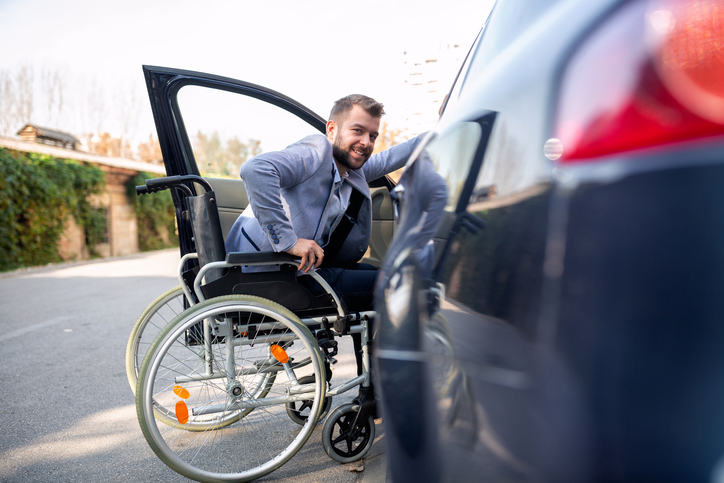Daily Mobility Challenges with a Spinal Injury

Living with a spinal cord injury (SCI) can be tough. Everyday tasks that once felt simple now require extra effort, adjustments, or support. But that doesn’t mean your independence and quality of life have to be compromised. With the right strategies, you can overcome daily mobility challenges, and still lead a fulfilling life!
At Eximius Support, we know how important it is to have the right care and encouragement. This article explores common mobility challenges spinal injury patients face and practical ways to overcome them.
Understanding Spinal Cord Injuries and Their Impact on Mobility
A spinal cord injury can change how a person moves and controls their muscles. The effects depend on the location and seriousness of the injury.
Complete vs. Incomplete Injuries: This type of injury results in total loss of movement and sensation below the affected area, while an incomplete injury may allow for partial function and sensation.
Levels of Impact: Injuries higher up on the spine can affect all four limbs (quadriplegia), while injuries lower down may affect only the legs (paraplegia).
Road accidents, falls, medical conditions, and sports injuries are the most common causes of spinal cord injuries.
Common Mobility Challenges for Spinal Injury Patients
Spinal cord injuries bring different mobility challenges to different people. Understanding them is the first step toward finding ways to manage them. Here are some of the most common ones:
1. Limited Lower Limb Function
Having weakness or paralysis in your legs can make standing and walking difficult. Everyday activities like getting in and out of bed, using the bathroom, or moving around at home require adjustments and extra support.
2. Muscle Weakness and Spasms
Nerve damage can lead to muscle weakness or unexpected spasms, which makes movement unpredictable. Stiffness can also reduce flexibility and balance. Stretching, physical therapy, and an individually tailored exercise programme can help manage these symptoms.
3. Balance and Coordination Issues
Simple manoeuvres, like standing up, sitting down, or moving from one position to another, can be tricky. This increases the risk of falls. Handy tools such as supportive seating or grab bars, as well as assistance from carers, can provide stability and reassurance.
4. Using a Wheelchair
Using a wheelchair brings freedom, but it also comes with difficulties. There will always be unexpected uneven surfaces and narrow doorways to navigate, and stairs can make movement difficult. Choosing the right wheelchair and making small changes at home can help improve accessibility and comfort.
5. Pain and Discomfort
Chronic pain, nerve pain, and pressure sores are common and can make moving around even harder. These can be managed with better positioning, specialised cushions, and regular movement to help ease discomfort.
Assistive Devices and Mobility Aids for Spinal Injury Patients
Thankfully, there are so many devices designed to make movement easier and safer:
Wheelchairs: Manual and powered options can give you independence and comfort.
Braces and Orthotics: These help with standing and walking, especially for those with partial leg function.
Walkers and Canes: If some mobility is retained, these aids add stability.
Exoskeletons and Robotics: This cutting-edge technology is helping some patients regain movement through wearable robotic devices. Amazing, right?
Physical Therapy and Rehabilitation
Rehabilitation is such an important part of improving mobility and confidence. A personalised therapy plan may include:
Strength and Flexibility Training: These include exercises that help maintain muscle tone and improve movement.
Occupational Therapy: Teaches you new ways to carry out daily tasks like dressing, eating, and personal care.
Hydrotherapy: Water-based exercises that ease movement without putting stress on the body.
Adaptive Sports and Activities: Engaging in modified physical activities boosts confidence and mobility.
How Live-In Care Supports Spinal Injury Patients
A spinal injury is life-changing, and mobility challenges can be frustrating, but they don’t have to take away independence or happiness. With the right care and support, life can still be rich and fulfilling. For those living with spinal injuries, professional live-in care can make a big difference. At Eximius Support, our carers provide personalised assistance and companionship to help you live a fulfilling, independent life.
If you or a loved one needs support, reach out to us today to see how we can help create a safer, more independent life.
Further reading:
Supporting our clients with spinal injury
Spinal Injuries: Complete vs Incomplete
Supporting Our Clients With a Spinal Injury